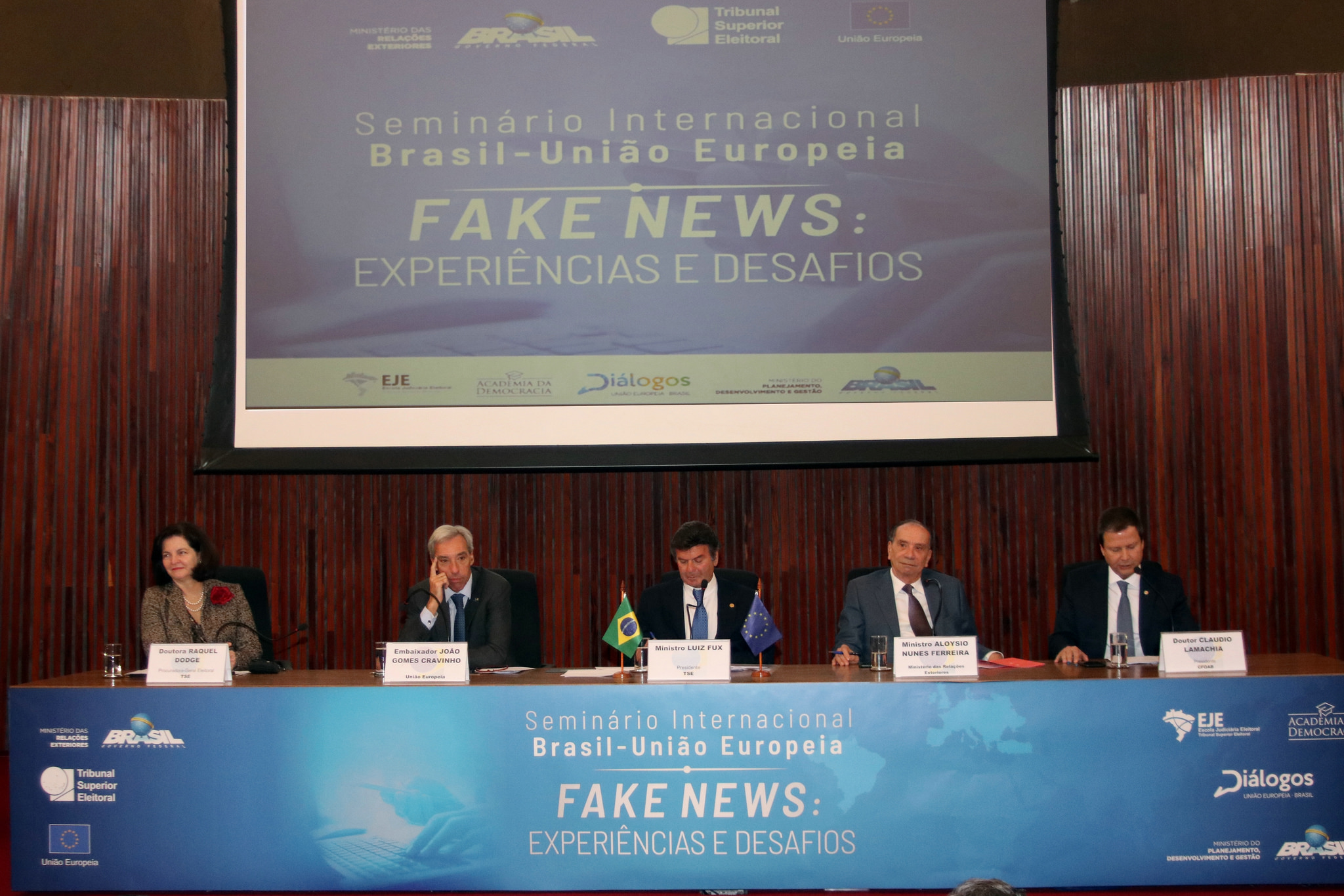
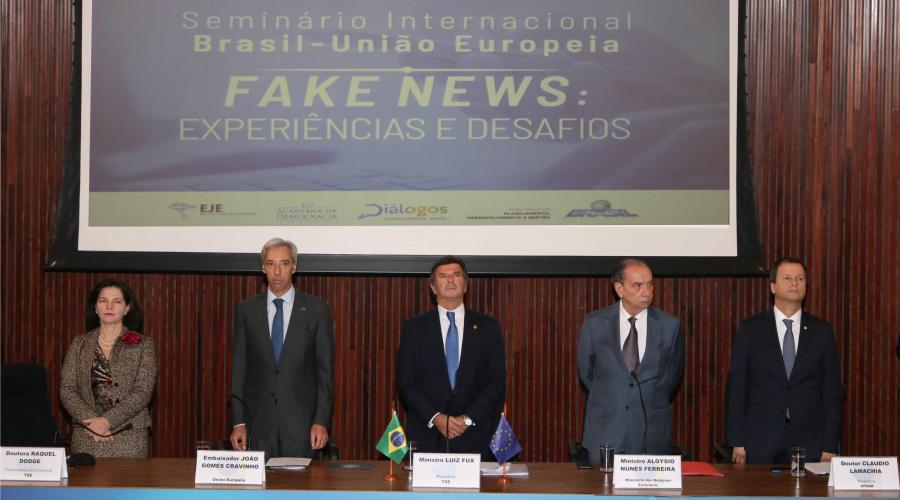
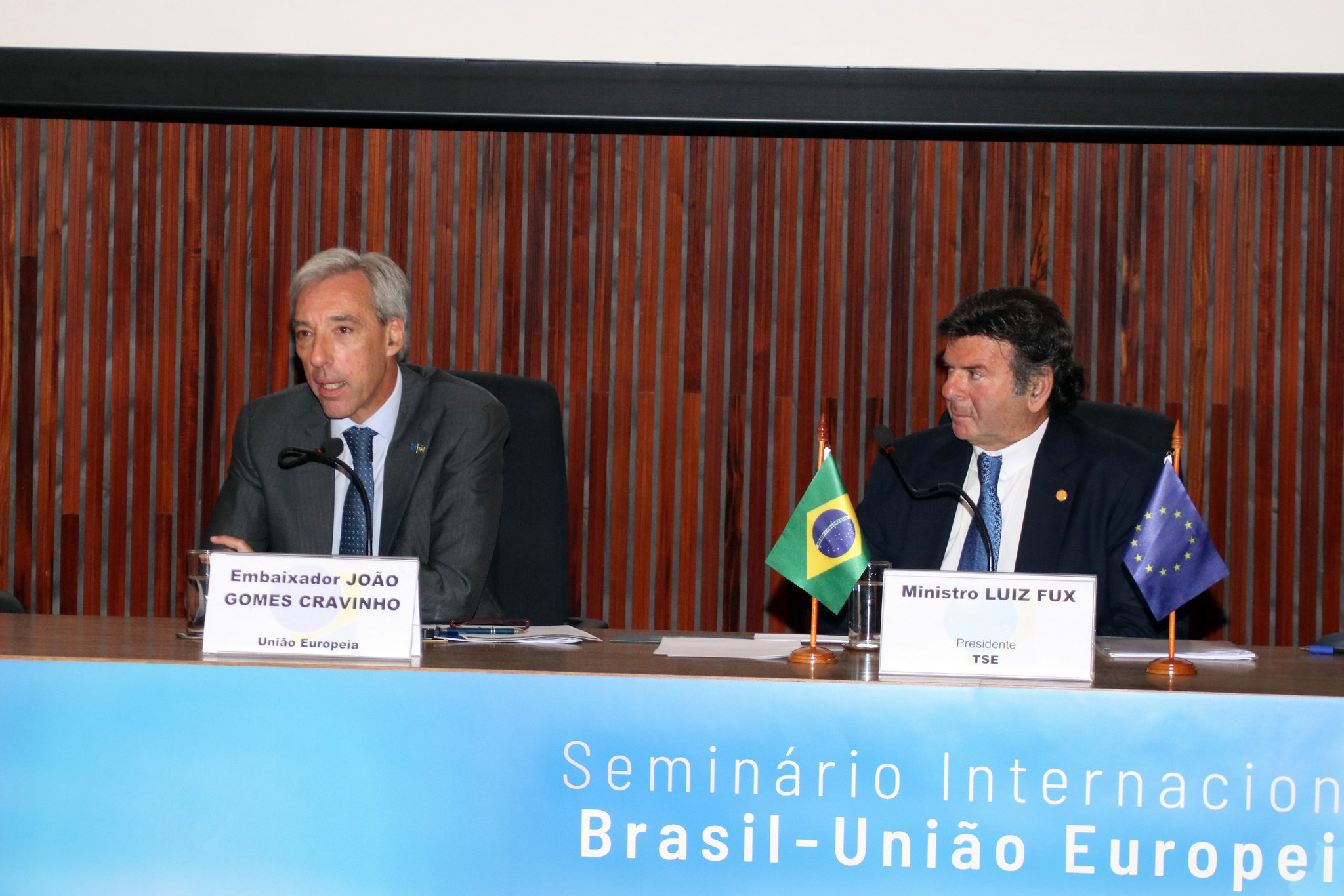
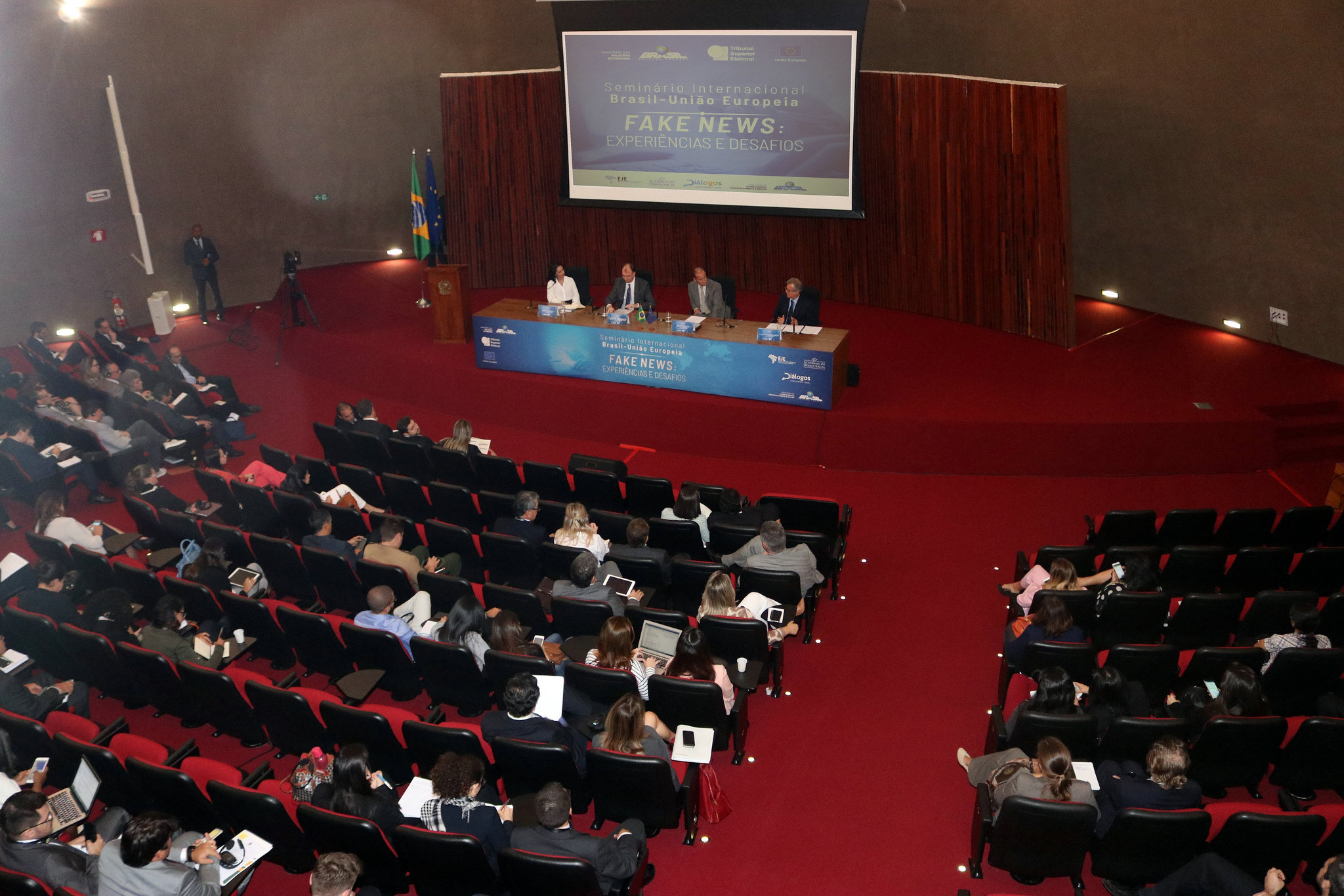
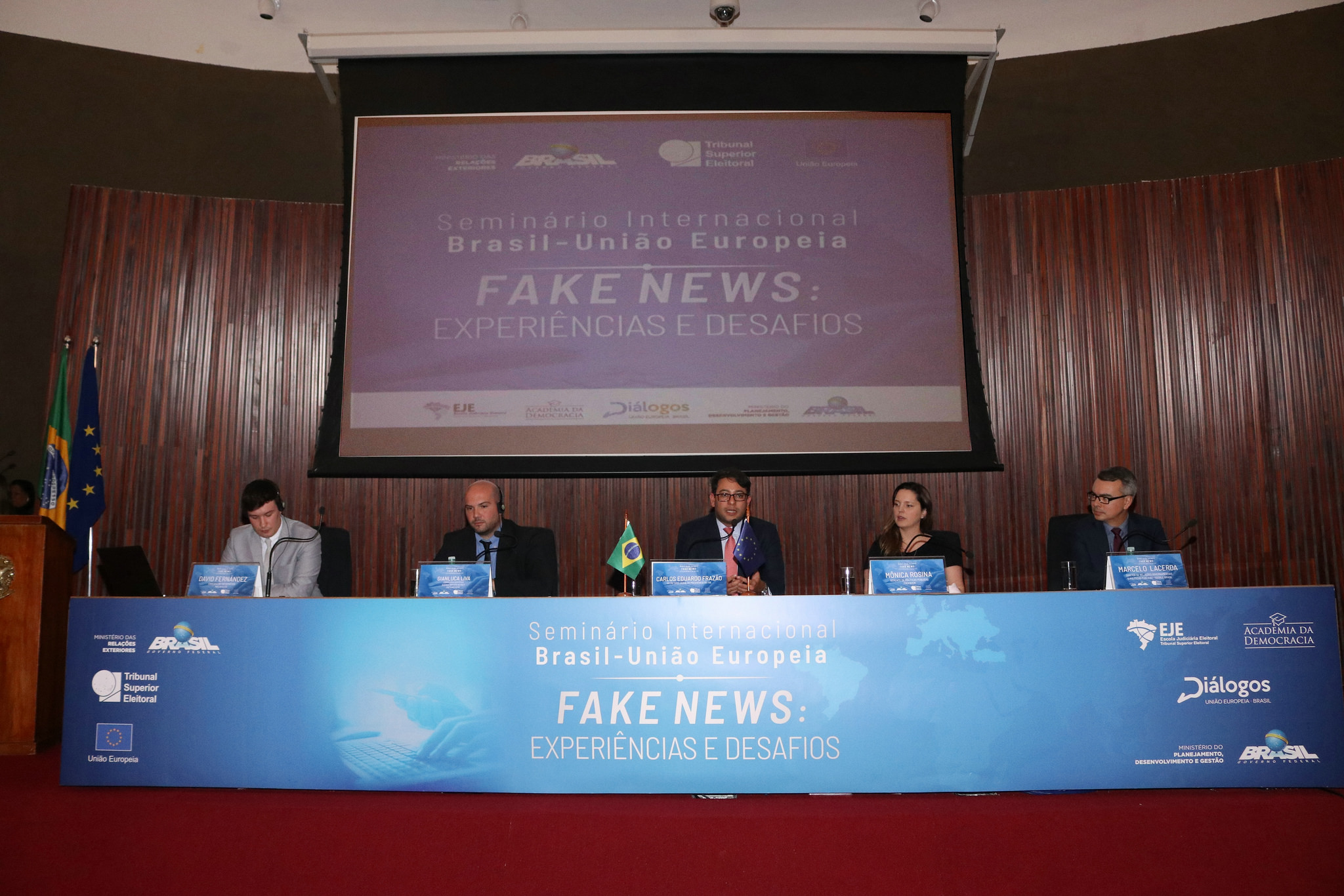
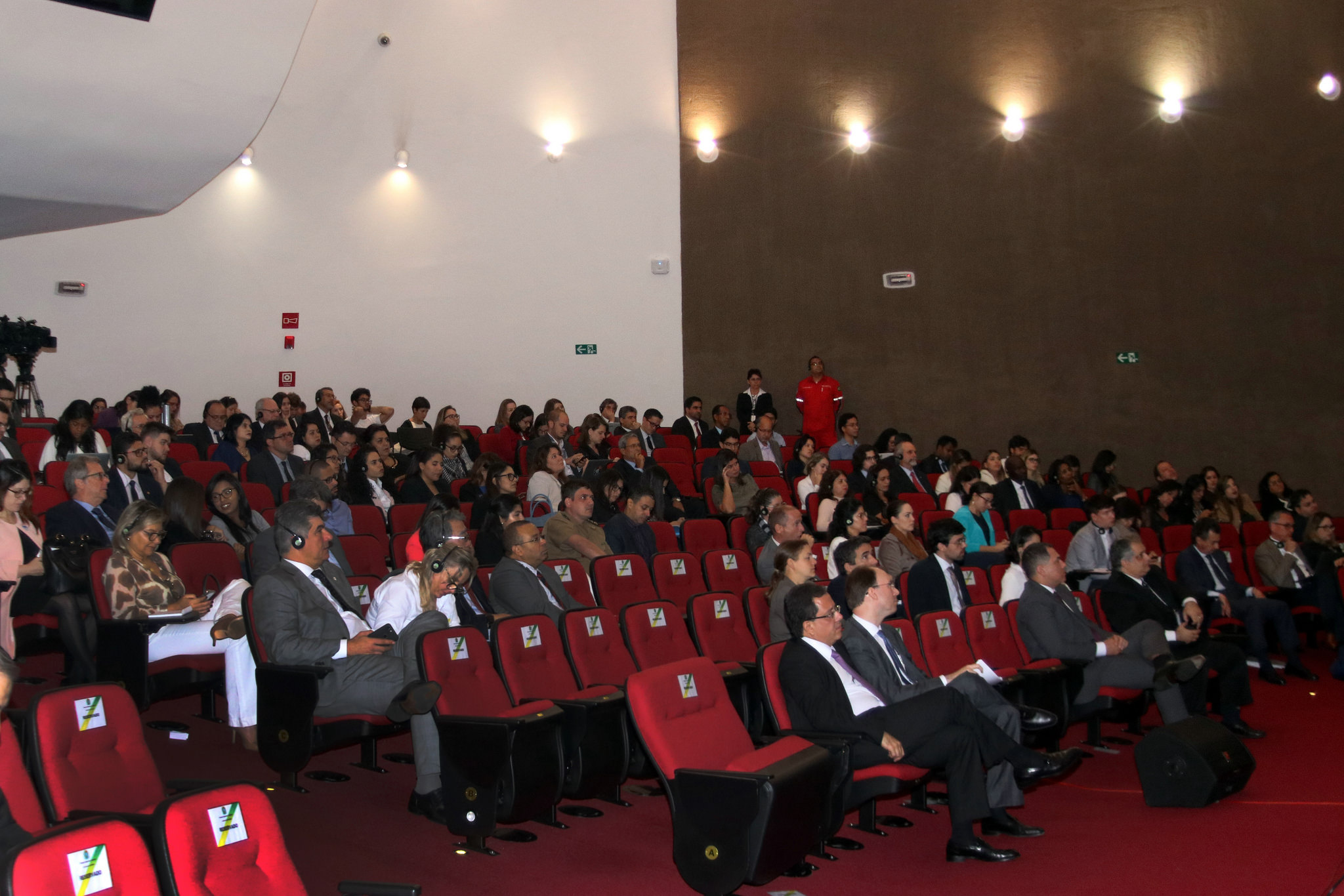
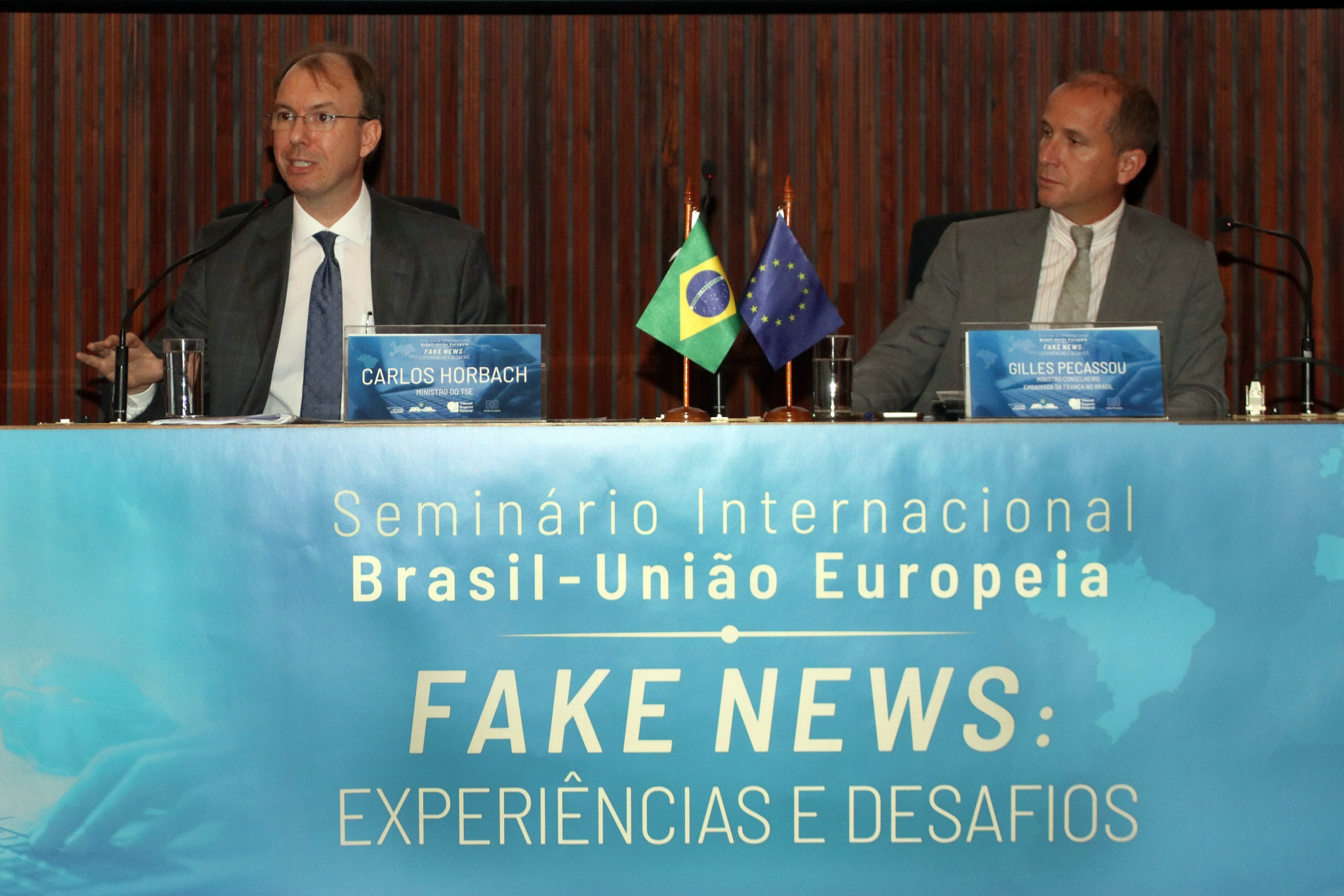
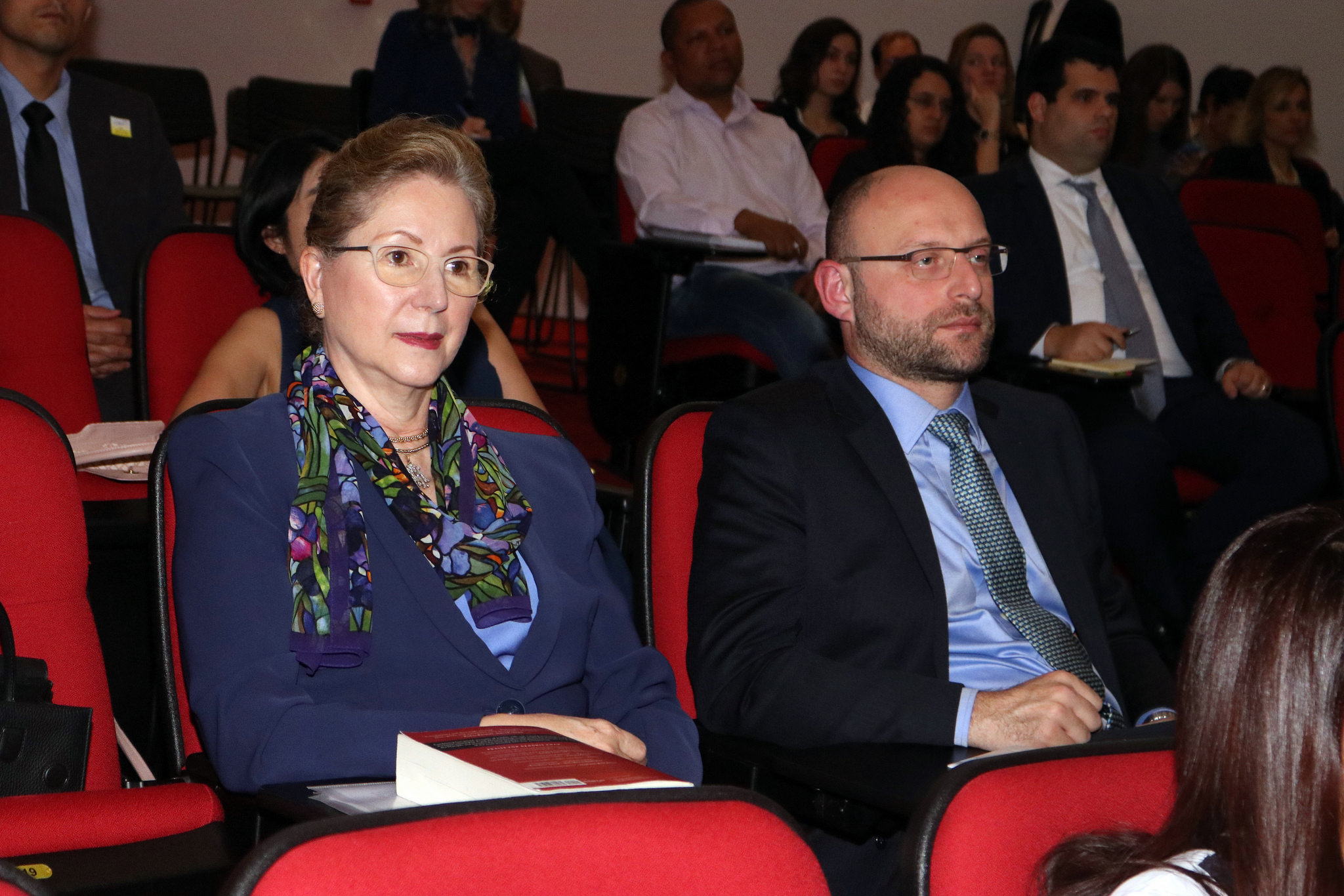
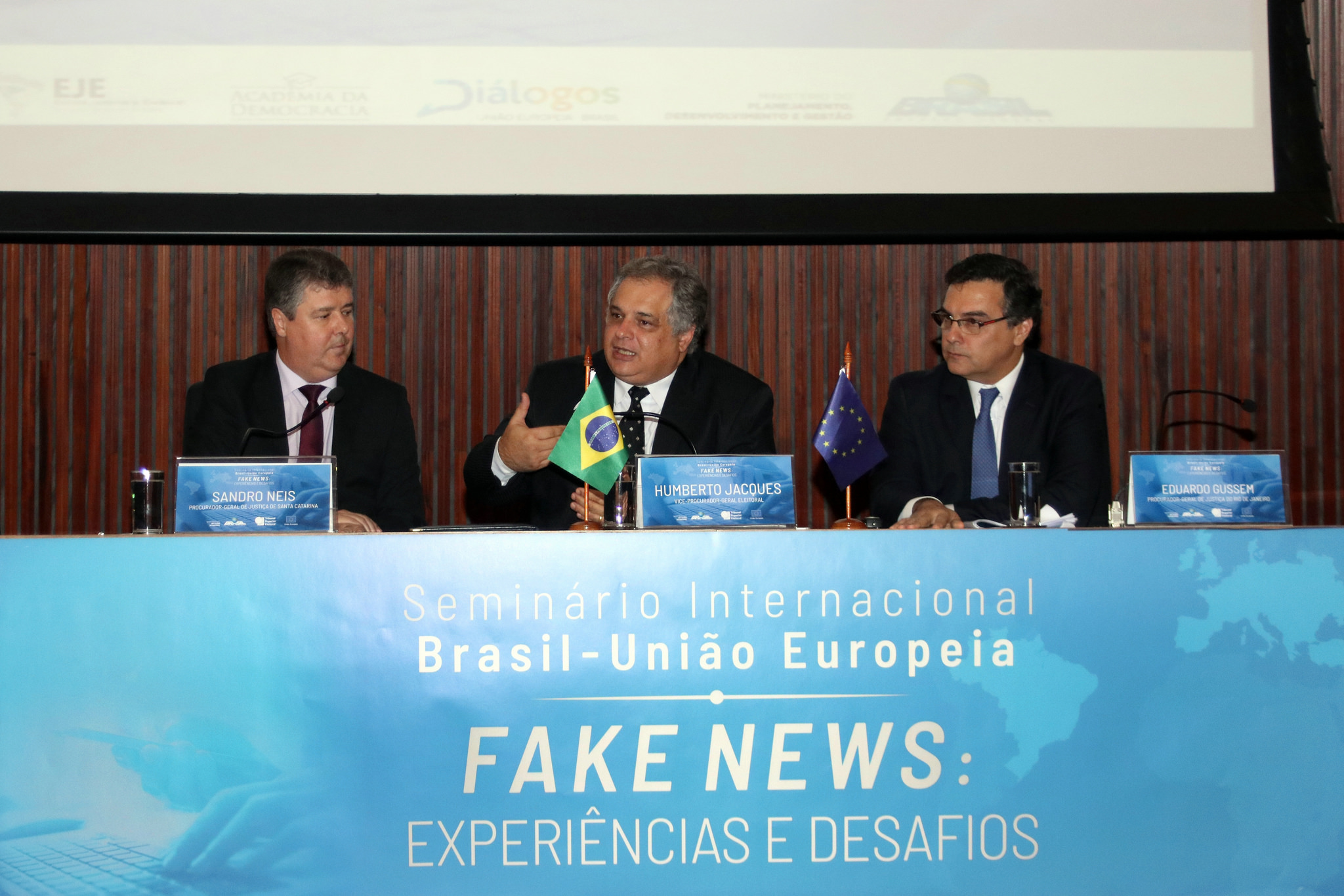
"In just six years, social networks have gone from being a tool for strengthening democracy to be used to attack democracies."
The statement by Ambassador João Gomes Cravinho of DELBRA (European Union Delegation in Brazil) summarizes the common concern of all participants in the EU-Brazil International Seminar Fake News: Experiences and Challenges, which advocated strengthening the press and journalism of credibility as the main instrument to combat the spread of false news.
During the opening of the event held on June 21 at the TSE (Supreme Electoral Court), supported by the EU - Brazil Sector Dialogues Support Initiative, Cravinho stressed that, in order to maintain a democratic system open, it is important that the government, business and consumers work together to combat misinformation.
"Governments should foster digital literacy and robust professional journalism in their societies. The news industry must provide high-quality journalism in order to build public trust and correct Fake News and disinformation without legitimizing them. Technology companies should invest in the development of tools to spot Fake News, reduce financial incentives for those who profit from misinformation, and enhance accountability online" he said.
The definition of the role of digital platforms is pointed out by the German specialist Martin Emmer, professor of the Freie Universität - Berlin, as fundamental in the fight against the Fake News. According to Martin, this debate must be done before thinking about legislation. "These actors have just emerged, and no one has really yet outlined the responsibilities of these platforms compared to traditional media outlets."
French expert Christophe Leclercq, founder of EURACTIV and a member of the European Commission's High-Level Group on Fake News, believes that it is crucial to restore the balance between media and digital platforms. Quoting Minister Luiz Fux, president of the TSE, "this means more journalism and more media to counter fake news."
EU-Brazil Partnership
Minister Luiz Fux said that this international seminar, with representatives from various sectors and countries in attendance provides for a healthy, diverse debate, and is fundamental to provide insights and food for thought and to help learn from the experiences with other electoral systems.
Along these lines, the Brazil’s Attorney General, Raquel Dodge, stressed that cross-national dialogues should be celebrated because the exchange of ideas favors the search for solutions. She pointed out that only well-established democracies view Fake News as an issue. "Anticipating the risk of fair and free elections being affected by malicious practices of social disinformation is an illustration provided by this court gives, like the European Union, of foresight and zeal, as well as an explicit demonstration that Brazil’s democracy is based on the full exercise of freedom, "she said.
Also speaking at the opening session of the seminar, the President of the OAB (Brazilian Bar Association), Claudio Lamachia, argued that “bringing civil society into the discussion on Fake News and the exchange of experiences between Brazil and European countries are relevant initiatives so we can move ahead”.
See the Brazilian press Seminar coverage (writen, television and radio) here:
Writen press
- O Estado de São Paulo - A abordagem europeia contra a desinformação artigo de opinião do Embaixador da União Europeia no Brasil, João Gomes Cravinho, (2018-06-21);
- Valor Econômico - Fux: Eleições podem ser anuladas se influenciadas por notícias falsas (2018-06-21).
Televison
- Jornal Nacional - Ministro Luiz Fux diz que fake news podem até anular o resultado de uma eleição, (2018-06-21);
- Jornal da Globo News - Justiça pode anular eleição se resultado for influenciado por fake news, (2018-06-21);
- Bom Dia Brasil - TV Globo,(2018-06-22).
Radio
Rádio Globo - Google e Facebook podem ser responsabilizados se não tirarem fake news do ar, (2018-06-21).
July 2018
